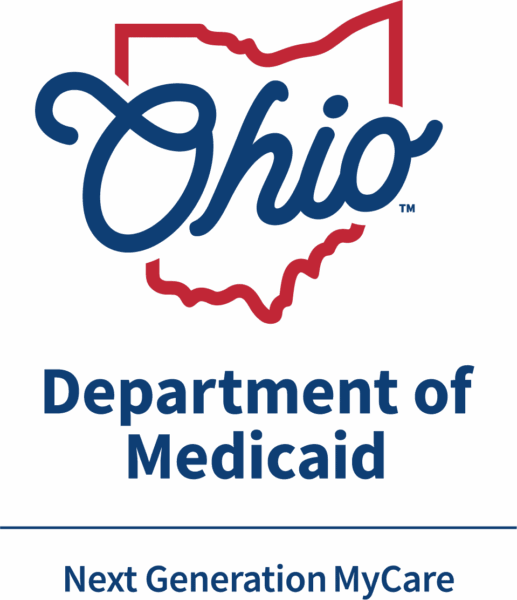What is Considered a Caregiver?
A caregiver is someone who assists elderly, ill, injured, or disabled individuals with their daily needs, helping them maintain their quality of life and independence. This support can include assistance with bathing, dressing, meal preparation, medication management, mobility, and companionship. Caregivers play a vital role in ensuring their loved ones receive the care they need in a safe, comfortable environment.
Some caregivers work as professional, paid employees through home care agencies or healthcare facilities. Others provide care informally as family caregivers, helping parents, grandparents, spouses, or close friends. While many family caregivers offer their time and effort without compensation, various programs—such as Medicaid waivers and state-funded assistance—allow them to receive payment for their work.

How You Can Get Paid to Take Care of a Loved One in Michigan
Michigan Home Help Program
The Michigan Home Help Program, managed by the Michigan Department of Health and Human Services (MDHHS), is designed to help individuals live independently in their own homes, rather than entering institutional care like a nursing facility. It offers financial support for family members, friends, or other chosen caregivers, empowering families to provide safe, consistent care while easing the financial burden that often comes with it.
If you’re caring for a loved one in Michigan, you may be eligible to get paid through this life-changing program. Contact FreedomCare today to check your eligibility and start the process.
What Is the Michigan Home Help Program?
The Michigan Home Help Program is a Medicaid-funded initiative that pays for non-medical personal care services—things like bathing, dressing, eating, toileting, and mobility support. These are often referred to as Activities of Daily Living (ADLs).
The true heart of the program lies in who can provide the care: you. Unlike traditional home health services that send someone unfamiliar into the home, the Home Help Program allows eligible participants to choose their own caregiver, including a family member or close friend. That means your mother, brother, daughter, or longtime neighbor could be compensated for the care they already give—or want to give.
Who Is Eligible?
To qualify, the person receiving care must:
- Be a Michigan resident
- Be eligible for Medicaid
- Need assistance with daily living activities due to age, disability, or medical condition
- Undergo an in-home needs assessment by a local MDHHS specialist
- Have a physician’s statement of medical necessity
Caregivers must:
- Be at least 18 years old
- Pass a criminal background check
- Complete training requirements set by the state
Importantly, spouses and legal guardians are not eligible to be paid caregivers under this program, but other family members—including adult children, siblings, cousins, or friends—often are.
What Services Are Covered?
The program covers a wide range of services depending on the needs of the person receiving care. This includes:
- Bathing assistance
- Dressing
- Grooming and hygiene
- Mobility (getting in/out of bed or chair)
- Meal preparation
- Feeding assistance
- Help with using the toilet
- Light house cleaning (when part of the care plan)
Remember, the Home Help Program does not cover skilled medical services like administering IVs or complex wound care. However, it does allow caregivers to assist with certain complex care tasks such as bowel programs, catheter or leg bag assistance, colostomy care, tube or supplemental feeding support, injections, and peritoneal dialysis. These services can make a significant difference in helping individuals remain safe, healthy, and independent in the comfort of their own homes.
How Much Do Caregivers Get Paid?
Payment rates vary depending on location and the number of hours authorized by MDHHS. Caregivers are generally paid hourly, and hours are determined during the needs assessment. While it may not replace a full-time income, many families find the compensation makes it more financially feasible to care for a loved one full-time or part-time.
Why It Matters
Too often, families face impossible choices when a loved one needs care: leave a job, drain savings, or consider institutional placement. The Michigan Home Help Program gives families another option—to keep loved ones at home, where they’re most comfortable, and get paid for the vital work they’re already doing.
At FreedomCare, we’ve seen firsthand the transformation that happens when people are supported to care for their loved ones. It’s more than a paycheck—it’s peace of mind, stability, and dignity for both the caregiver and the one receiving care.
If you think the Michigan Home Help Program might be a fit for your family, reach out to your local MDHHS office to get started. You’ll complete an application, schedule a needs assessment, and—once approved—you can choose the caregiver who knows and loves you best.
Other Ways to Get Paid as a Caregiver in Michigan
If Medicaid benefits don’t apply to your situation, there are still other options:
- Long-Term Care Insurance – Some policies allow payments to family caregivers.
- Employer-Sponsored Benefits – Certain companies offer paid leave for caregiving.
- Family Payment Agreements – Families may choose to privately pay a relative for caregiving services with a formal agreement in place.
FreedomCare can help connect you with resources and programs that match your situation.
Finding Support as a Family Caregiver in Michigan
Caring for a loved one can be overwhelming, but you don’t have to do it alone. Michigan offers several caregiver support services to help:
- Area Agencies on Aging (AAAs) – Provide respite care, transportation, and home-based services.
- Michigan Long-Term Care Ombudsman Program – Advocates for families navigating long-term care options.
- Michigan Office of Services to the Aging (OSA) – Connects caregivers with training, support groups, and financial assistance.
- Local Michigan Department of Health & Human Services (MDHHS) Office – Find your local Michigan Department of Health & Human Services (MDHHS) Office with this interactive map.
At FreedomCare, we help family caregivers. We connect them to resources and assist with financial support. We also guide them to the best programs.
Steps to Become a Paid Family Caregiver with FreedomCare
1. Check Your Eligibility with FreedomCare
Start by reaching out to FreedomCare. We’ll walk you through a few simple questions to determine whether your loved one is eligible for Medicaid and qualifies for the Michigan Home Help Program. We’ll also confirm that you meet the basic caregiver requirements.
2. Coordinate with a FreedomCare Case Manager
If you’re eligible, FreedomCare will assign you a dedicated case manager. They’ll help you gather the documents you need and guide you through the Home Help Program enrollment process with the Michigan Department of Health and Human Services (MDHHS). We’re here to make sure nothing gets missed—from the physician’s statement to the required needs assessment.
3. Complete Program Requirements
Once approved by MDHHS, you’ll need to complete a few caregiver steps:
- Pass a criminal background check
- Complete required training modules
- Register in CHAMPS (Michigan’s Community Health Automated Medicaid Processing System), which allows the state to track your hours and issue payments
FreedomCare will walk you through each of these steps so you don’t have to figure it out on your own.
4. Start Providing Care & Log Your Hours
After enrollment, you can begin caring for your loved one as their official paid caregiver. FreedomCare provides support and simple tools to help you track your hours, tasks, and services—so everything is properly documented for payment.
We’ll help you stay organized and compliant, whether it’s through easy-to-use time tracking, regular check-ins, or answers to your questions along the way.
5. Get Paid & Stay Supported
As a caregiver enrolled through the Home Help Program, you’ll receive direct payment for the hours you work. FreedomCare ensures payments are processed efficiently and offers ongoing support so you can focus on what matters most—caring for your loved one.
Start Today
You’ve already taken the most important step: caring for someone you love. Now it’s time to get the support you deserve.
Contact FreedomCare today to check your eligibility and take the first step toward becoming a paid family caregiver in Michigan.








